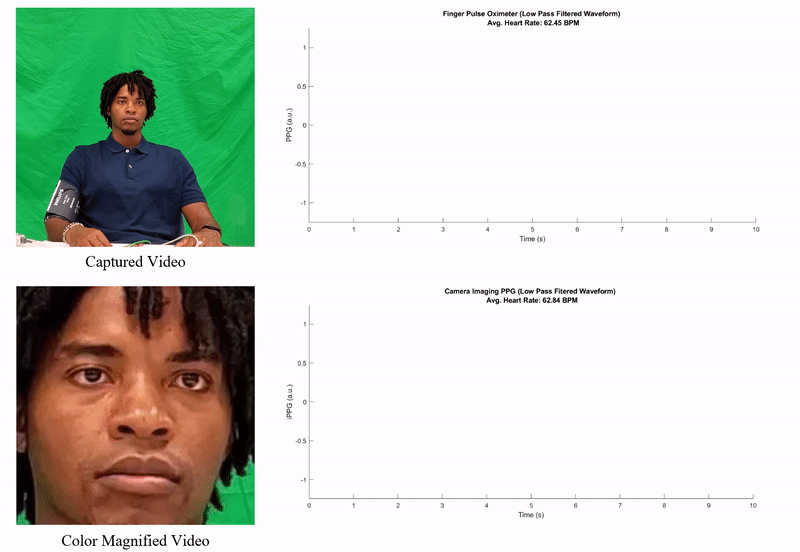Diverse RPPG: Camera-based Heart Rate Estimation for Diverse Subject Skin Tones and Scenes
Pradyumna Chari1 Krish Kabra1 Doruk Karinca1 Soumyarup Lahiri1 Diplav Srivastava1 Kimaya Kulkarni1 Tianyuan Chen1 Maxime Cannesson2 Laleh Jalilian2 Achuta Kadambi13
Department of Electrical and Computer Engineering1 Department of Anesthesiology and Perioperative2 California NanoSystems Institute, University of California, Los Angeles, USA3
 The proposed method uses small variations in skin color, as well as novel physics guided techniques to estimate the heart rate in a skin tone robust manner. The plots show low pass filtered versions (containing the first and second harmonics of the estimated pulse rate) of both the ground truth and estimated pulse waveforms to visualize the similarity.
The proposed method uses small variations in skin color, as well as novel physics guided techniques to estimate the heart rate in a skin tone robust manner. The plots show low pass filtered versions (containing the first and second harmonics of the estimated pulse rate) of both the ground truth and estimated pulse waveforms to visualize the similarity.